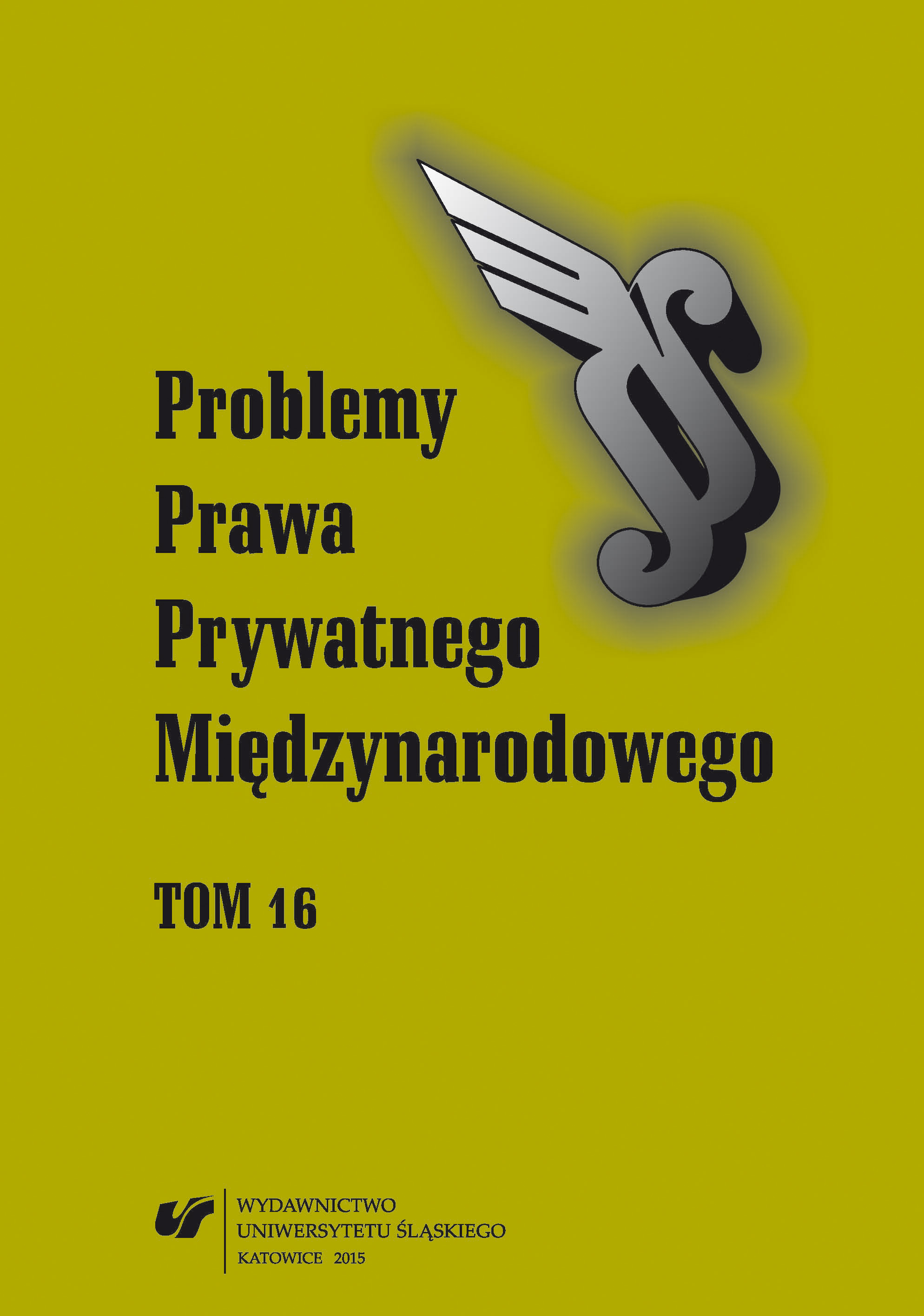Aspekty kolizyjnoprawne zapisu windykacyjnego
Conflict of laws issues relating to the legacy per vindicationem
Author(s): Maksymilian PazdanSubject(s): Law, Constitution, Jurisprudence, Civil Law, International Law
Published by: Wydawnictwo Uniwersytetu Śląskiego
Keywords: legacy per vindicationem; law applicable to succession; transfer of the ownership; legal effects of the legacy per vindicationem
Summary/Abstract: The law applicable under Articles 24 and 25 of the EU Regulation No 650/2012 determines what types of legal acts, that could contain dispositions of property upon death, are admissible. On the other hand, according to Article 23(2)(b) and (e) of the Regulation, it is the law applicable to the succession under Article 21 and 22 which determines what types of dispositions may be carried out by the successor. Consequently, the law applicable to succession decides about the admissibility of the legacy (bequest) per vindicationem. It determines also the legal effects of the legacy per vindicationem. The question arises, however, as to the potential role played by the law applicable to the proprietary status of the assets (lex rei sitae, etc.). Here, one needs to take into account the type of the asset that is subject to the legacy per vindicationem. The transfer of the ownership of the asset which belonged to the deceased to the legatee per vindicationem is governed by the law applicable to the succession. The legacy per vindicationem does not lead to a creation of a new right in rem but only to a transition of the right from one person to another. This is evident from Article 23(2)(e) of the Regulation. The numerus clausus principle is not infringed. The law applicable to succession determines whether the legacy per vindicationem of a receivable (claim) is admissible and what should be the characteristics of such a receivable. The law applicable to the receivable in question, on the other hand, governs questions such as the existence and content of the receivable, who is entitled to it, and whether it is transferable inter vivos or upon death. The legacy per vindicationem will lead to creation of the limited right in rem if the law applicable to succession knows a given type of the subject matter of the legacy and the lex rei sitae recognizes the limited right in rem, which the successor wishes to establish. The importance of the instrument referred to as „adaptation” is underlined in para 16 of the Preamble to the Regulation. The effectiveness of the legacy per vindicationem of a business or a farm located in a state different from the state which law is applicable to succession, depends on whether the law of the state where a business or a farm is located treats them as separate estates and makes them transferable (just as the law applicable to succession does). The term „legal requirements for recording in a register of rights” used in Article 1(2)(l) should be given a narrow meaning. It does not encompass the substantive title of the acquisition of the right which is subject to recording in the register nor subjecting it to the law applicable to the given register. However, the role of the register (including the one played in the discussed context) is determined by the law applicable to the register (which is underlined also in para 19 of the Preamble). This law should be applied next to the law applicable to the succession. It can postpone the effects of the legacy per vindicationem but it cannot annul its effects.
Journal: Problemy Prawa Prywatnego Międzynarodowego
- Issue Year: 2015
- Issue No: 16
- Page Range: 11-30
- Page Count: 20
- Language: Polish

